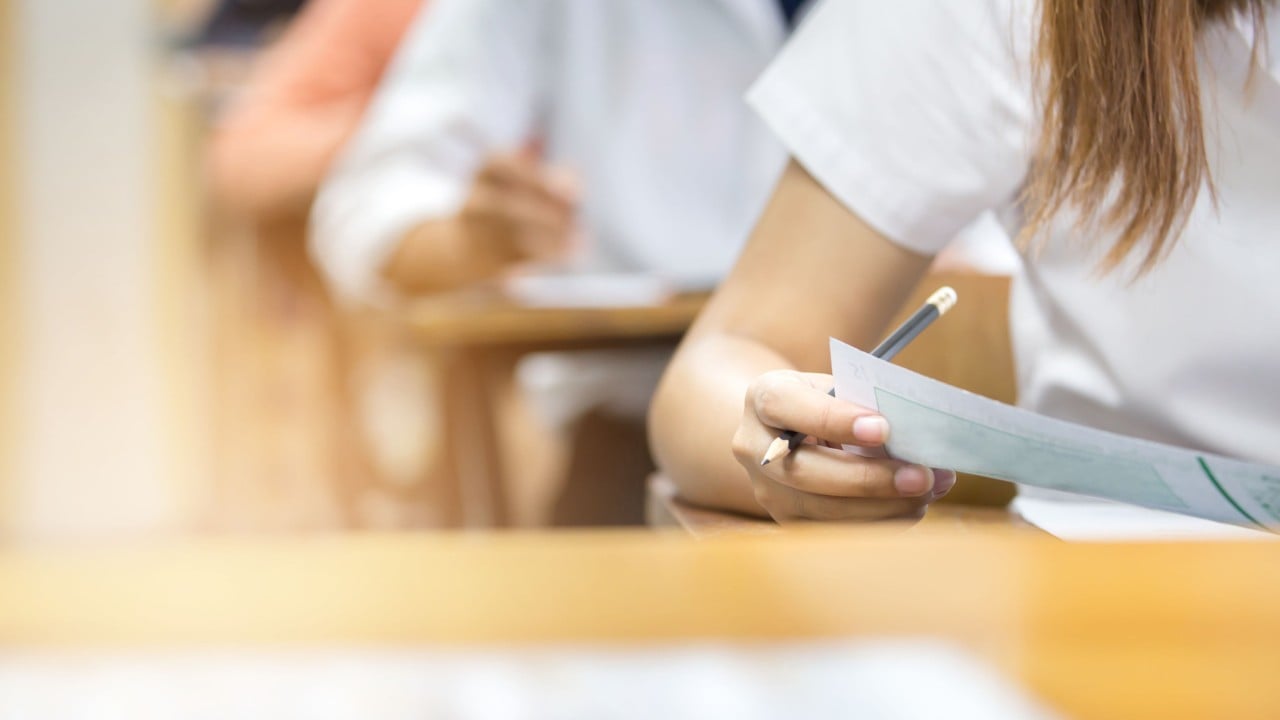A Hong Kong education expert and pupils have raised doubts about new rules to be imposed on International Baccalaureate (IB) exams and insisted they would fail to clamp down on “time zone cheating”.
They predicted it would place extra burdens on schools and cause frustration among candidates for the exams.
They spoke out after IB authorities announced that November exam candidates would be supervised for at least two hours after the assessments and test start times in some schools would be adjusted to prevent time zone-based cheating.
“If a student has a single exam scheduled for one hour, they must still be supervised for a minimum of two hours … whether it’s in the exam venue or another dedicated supervision space in the school,” the organisation said on its website.
Hans Yeung Wing-yu, a former assessment development manager for history, who worked at the Hong Kong Examinations and Assessment Authority for 15 years, said the new rules were “caught between two stools”.
“The two-hour supervision period and adjusting test start times by just 30 minutes to an hour serve little purpose, as some regions have time differences of more than two hours,” he said.
Yeung also highlighted there was a six-hour gap between most Asian countries and Europe.
The new rules were introduced after a cheating scandal during exams held between April 24 and May 17.
Pupils in Europe were alleged to have accessed leaked questions and answers on Telegram before their tests.
Some in Asia reported the leak of papers happened after they had sat the exams.

The news sparked outrage and calls for test cancellations or retakes, including from Hong Kong IB candidates.
The Post compared the start times for the May and November exams this year and discovered the next tests would start between 30 minutes to an hour later in three exam areas in zone A, one of the three time zones for IB where most Asian countries and Australia fall.
One exam area in zone A has advanced the exam start times by an hour.
Yeung said the new measures would impose an unnecessary administrative burden to schools and force exam-takers to shoulder the responsibility for the prevention of cheating.
“Schools that house the exams will have to spend more as they will need to hire staff for the additional supervision period,” he added.
“And I certainly don’t think any exams in the world would retain students after they complete the exams.”
Yeung suggested the IB authority should think of other precautions, such as the addition of more time zones and the use of exam papers specific to areas to prevent time zone cheating.
Beatrix Wu*, who will sit IB exams next May, said the supervision time requirement was “too harsh” and “frustrating”.
“The supervision time is like taking an extended exam because the pressure and the invigilators/supervisors will still be present,” Wu said.
“I am very frustrated about this because exams are already a very unenjoyable and difficult experience, and the supervision period only adds to this.”
Kylie Cheung, who took part in this year’s May exams, which did not require a supervision period, argued that the two-hour supervision period would be a problem.
She said pupils taking morning and afternoon exams would find the supervision period in between difficult, as they could not use online resources to continue preparation for the next test.
Rhea Saxena, who also took the May exam this year, added the new supervision rule might have a psychological effect on students, who tended to share their feelings with their peers right after exams.
“Being so restrained and restricted may also cause students to feel more self-doubt and more isolated from their peers,” she said.
The IB authorities also asked schools to wipe the memories of all calculators used at the end of each exam.
There are three time zones – A, B and C – under the IB regime. Most countries and regions in Asia, as well as Australia, usually fall into zone A, with Europe and Africa in zone B and the Americas in zone C.
The IB and Diploma of Secondary Education are the city’s two major university entrance exams.
There are 38 schools in Hong Kong that provide the IB diploma programme.
*Name changed at interviewee’s request


